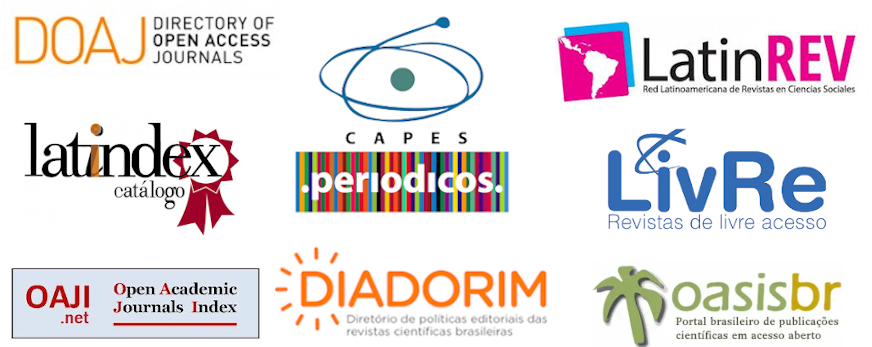The Aesthetics of Nihilism: the Construction of the Narrator-Charater in Notes from Underground
DOI:
https://doi.org/10.11606/issn.2317-4765.rus.2024.226519Keywords:
Russian literature, Dostoevsky, Nihilism, AestheticsAbstract
The present article aims to investigate the relationship between nihilism and the construction of the narrator-character in Fyodor Dostoevsky's Notes from Underground. To this end, it analyzes the nihilistic aesthetics within the work, highlighting how the author, by positioning himself as a subject of his own creation, employs nihilism both as an aesthetic device and as a target of criticism, while simultaneously striving to transcend it. In this context, the Russian author understands nihilism not only as a representation of the human condition, as described by Nietzsche, or as a historical phenomenon that affected 19th-century Russia, but also as a creative force and political power that shapes his literary production.
Downloads
References
BENJAMIN, Walter. Sobre o conceito de história. Org. São Paulo: Alameda, 2020.
BUTLER, Judith. Vida precária: os poderes do luto e da violência. Belo Horizonte: Editora Autêntica, 2019.
CÉSAR, Jaime. Libertad, irracionalismo y escisión: tras los rastros de F. Dostoievski en la novela Nosotros de Zamiatin. Acta poét: Ciudad de México, v. 44, n. 1, p. 179-200, jun. 2023. Disponível em: http://www.scielo.org.mx/scielo.php?script=sci_arttext&pid=S0185-30822023000100179&lng=es&nrm=iso. Acesso em fev. 2024.
CHAMBERLAIN, Lesley. Mãe Rússia: uma história filosófica da Rússia. Rio de Janeiro: Record, 2022.
DEBORD, Guy. Sociedade do espetáculo. Rio de Janeiro: Contraponto, 1997.
DOSTOIÉVSKI, Fiódor. Memórias do subsolo. São Paulo: Penguin-Companhia das Letras, 2021.
DOSTOIÉVSKI, Fiódor. O sonho de um homem ridículo. Rio de Janeiro: Antofágica, 2021.
FIGES, Orlando. Uma história cultural da Rússia. 5. Ed. Rio de Janeiro: Record, 2022.
FIGUEIREDO, Rubens. Apresentação. In: DOSTOIÉVSKI, Fiódor. Memórias do subsolo. São Paulo: Penguin-Companhia das Letras, 2021.
FIGUEIREDO, Rubens. Apresentação. In: TURGUÊNIEV, IVAN. Pais e Filhos. São Paulo: Companhia das Letras, 2019.
GOMIDE, Bruno Barretto. Da Estepe à Caatinga: O Romance Russo no Brasil (1887-1936). São Paulo: Editora da Universidade de São Paulo, 2011.
GUERVÓS, Luis Enrique. O antiniilismo estético e a superação do niilismo. Cad. Nietszche, Guarulhos/Porto Seguro, v. 39, n. 3, p. 11-29, setembro/dezembro, 2018. Disponível em: https://doi.org/10.1590/2316-82422018v3903lesg. Acesso em fev. 2024.
LE GUIN, Ursula K. A teoria da bolsa da ficção. São Paulo: N-1 Edições, 2021.
NASCIMENTO, Rodrigo Alves. Lukács leitor de Dostoiévski. Slovo: Revista de Estudos em Eslavística, v. 1, n. 1, p. 105-116, jun. – dez. 2018. Disponível em: https://revistas.ufrj.br/index.php/slovo/article/download/17470/11277/0. Acesso em fez. 2024.
NIETZSCHE, Friedrich Wilhelm. O nascimento da tragédia, ou Helenismo e Pessimismo. São Paulo, Companhia das Letras, 1992.
SILVIANO, Jarlee Oliveira Silva. Labirintos do nada: a crítica de Nietzsche ao niilismo de Schopenhauer. São Paulo: Editora da Universidade de São Paulo, 2013.
TODOROV, Tzvetan. Teorias do símbolo. 1. Ed. São Paulo: Editora Unesp, 2014.
VASSOLER, Flávio Ricardo. Dostoiévski e a dialética: fetichismo da forma, utopia como conteúdo. São Paulo: Editora Hedra, 2018.
Downloads
Published
Issue
Section
License
Copyright (c) 2024 Douglas Fonseca Bonganhi

This work is licensed under a Creative Commons Attribution-NonCommercial-ShareAlike 4.0 International License.
Authors who publish in RUS agree to the following terms:
a. Authors retain copyright and grant the journal right of first publication with the work simultaneously licensed under a Creative Commons Attribution 4.0 International License (CC BY-NC-SA 4.0) that allows others to share the work with an acknowledgement of the work’s authorship and initial publication in this journal.
b. Authors are able to enter into separate, additional contractual arrangements for the non-exclusive distribution of the journal’s published version of the work (e.g., post it to an institutional repository or publish it in a book), with an acknowledgement of its initial publication in this journal.
c. Authors are permitted and encouraged to post their work online (e.g., in institutional repositories or on their website) prior to and during the submission process, as it can lead to productive exchanges, as well as earlier and greater citation of published work (See The Effect of Open Access).





